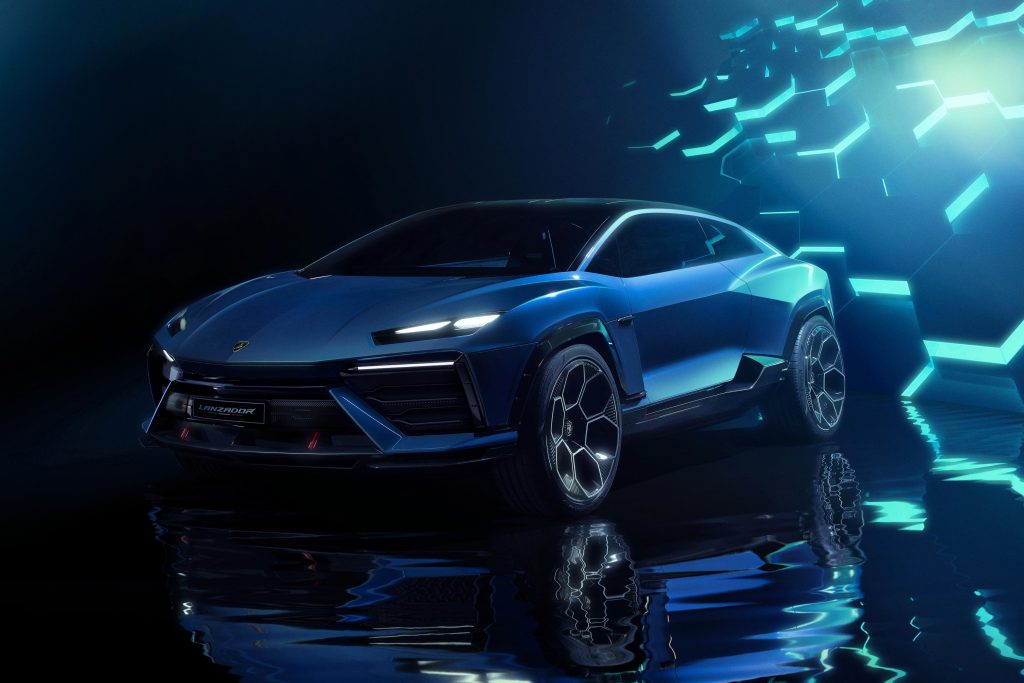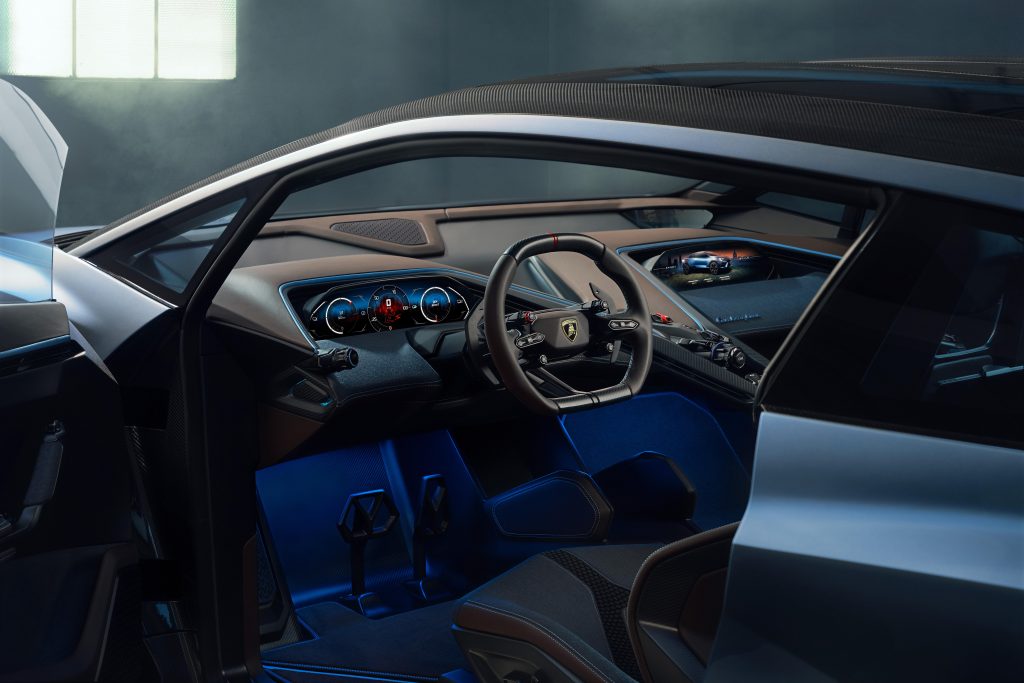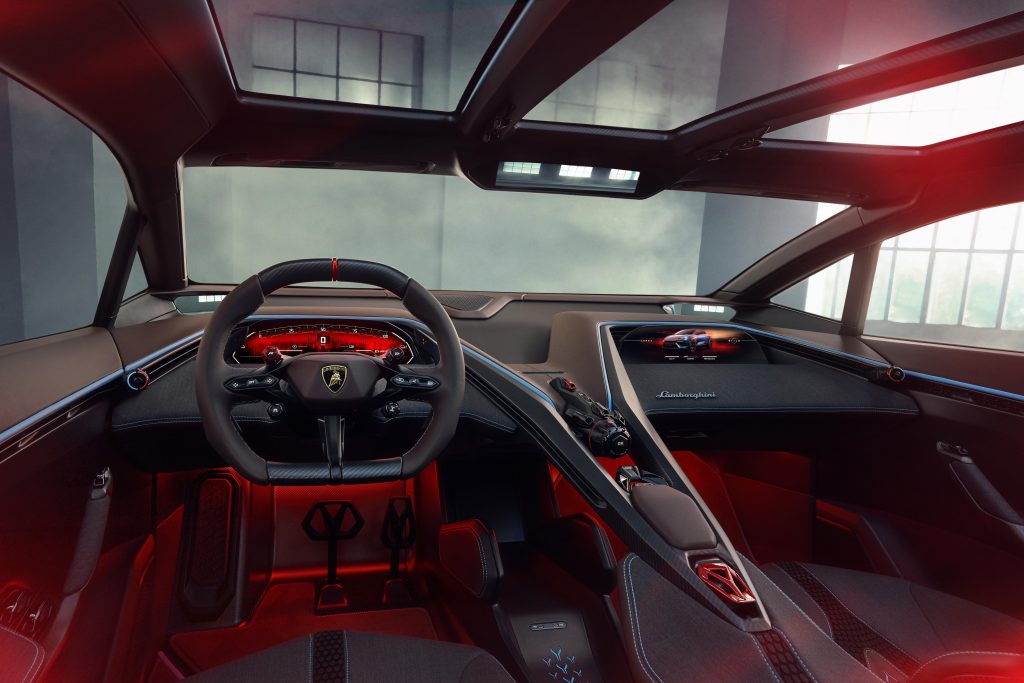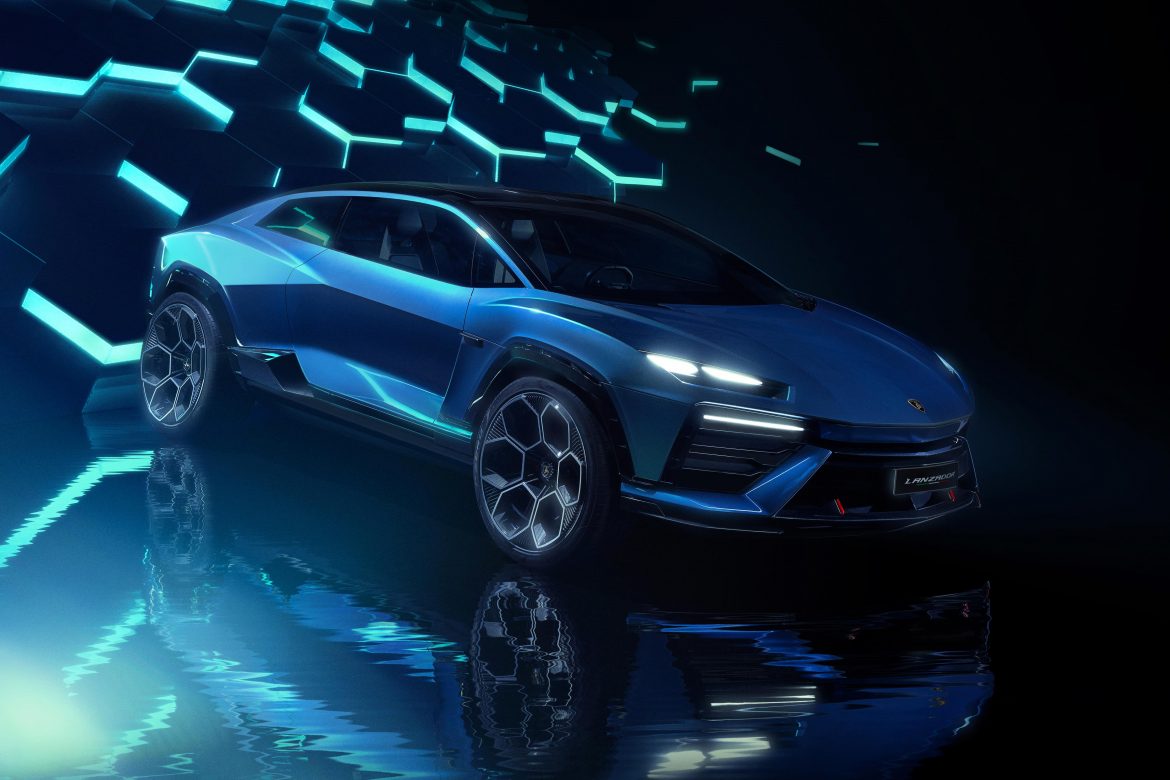Lamborghini has officially unveiled its inaugural all-electric vehicle, known as the “Lanzador.” While it undeniably captures attention with its bold and striking appearance, some may argue that it lacks the traditional aesthetic balance associated with the brand. Nevertheless, the Lanzador manages to blend design elements from previous Lamborghini models, drawing inspiration from the Urus in the front view with squared-off wheel arches and side cladding.

However, its sleek body shape and elongated rear end bear a resemblance to Lamborghini’s sports car range. Furthermore, the Lanzador boasts a distinctive three-insignia tail lamp design, reminiscent of the Sian FKP 37, positioning it as a bridge between the Urus and Lamborghini’s lineup of traditional mid-engined supercars.
Inside the Lanzador concept, the cabin exudes a futuristic ambiance akin to a spaceship. The cockpit is divided down the middle by a central console housing a pilot’s unit for controlling infotainment and climate settings.

Two digital displays—one for the driver and one for the passenger—retract seamlessly into the dashboard when not in use. Notably, there is no central screen on the dash, and Lamborghini proudly states that the interior is predominantly upholstered with sustainable materials sourced locally in Italy.

The Lanzador concept features futuristic bucket seats in a striking gray-and-golden color scheme, although the production-spec version is expected to offer conventional seats for enhanced comfort.
Details about the Lanzador’s battery pack remain somewhat elusive, but Lamborghini has disclosed that it will feature an electric motor on each axle, providing an all-wheel-drive configuration.
The company claims that this powertrain will produce over one megawatt, equivalent to more than 1,340 horsepower, making it the most potent Lamborghini model to date
Additionally, the Lanzador concept incorporates innovative applications of Lamborghini’s active aero systems, including a front air shutter and a movable splitter. Its narrow airblades at the rear can extend from the sides and the diffuser, enhancing downforce. However, a Lamborghini’s allure goes beyond sheer power; it is intricately tied to the emotional experience, and sound plays a pivotal role in this. Lamborghini is diligently working on perfecting the Lanzador’s acoustic signature during acceleration, ensuring that it remains authentic and not merely a synthesized or amplified noise.
Anticipated for a production-ready version by 2028, the Lanzador is poised to challenge the Porsche Taycan Cross Turismo upon its release, with likely refinements and adjustments to its design and features.



